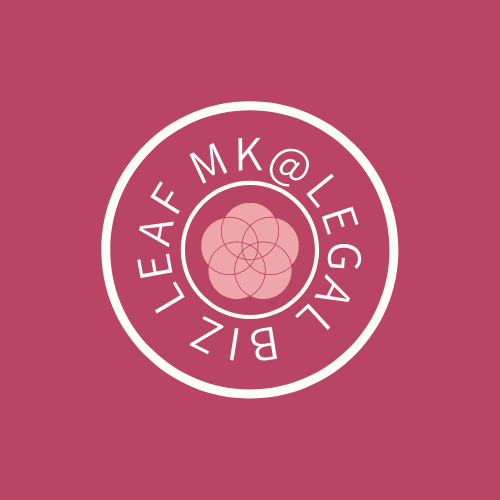Types of Shareholders’ Meetings
There are two types of shareholders’ meetings.【 Skip to the conclusion 】
Ordinary General Meeting of Shareholders (OGM)
OGM is the meeting of shareholders, which is mandatory for all Kabushiki Kaisha to have annually. Usually, following matters are to be reported and to be resolved at the meeting.
Mandatory for each OGM
- Approval of financial statements and supplementary schedules thereof
*** For companies which hold both a Board of Directors (BoD) and Accounting Auditors, directors need to report such content of financial statement, but the approval of the shareholders are not mandatory. - Report on the contents of the business report and supplementary schedules thereof.
Resolutions to be made as necessary
- Election of officers (due to expiration of term of office):
Under the Companies Act, the expiration of term of office of officers (e.g., directors and auditors) are stated as “until the conclusion of the ordinary general meeting of shareholders”. - Determination or revision of remuneration of officers:
Note: If the date of determination or revision is more than three months after the start of the fiscal year, the remuneration for directors and auditors may not be corporate tax deductible. Please consult with your tax consultant for details. - Changes to Articles of Incorporation:
Ex) Revision of business purpose, Amendment of AoI, etc. - Dividends of surplus, etc….
Glossaries
Financial statements: In principle, financial statements refer to:
A) Balance sheet
B) Income statement
C) Statement of changes in net assets
D) Notes to non-consolidated financial statements
E) Consolidated financial statements:
☆Mandatory for large companies
☆ Optional for companies which hold Accounting Auditors.
Large Companies: Companies with either
(a) The stated capital in the balance sheet as of the end of its Most Recent Business Year is 500,000,000 JPY or more;
Or
(b) The total sum of the amounts in the liabilities section of the balance sheet as of the end of its Most Recent Business Year is 20,000,000,000 JPY or more.
Extraordinary General Meeting of Shareholders (EGM)
General meeting of shareholders other than OGM are all EGM.
For Example: Matter to be resolved:
A director resigns in the middle of his/her term of office.
Raising funds by issuing shares for subscription, etc.
General Meeting of Shareholders Convened by directors
Sample Procedures to hold an extraordinary shareholders’ meeting
- Determination of matters to be resolved at shareholders meeting, etc. by Directors or Board of Directors
- Sending Notice of convocation to shareholders
- Holding general meetings of shareholders
- Preparation of Minutes
Directors authorized to convene the meeting
Any authorized directors. In general, Representative Directors.
Determination of following matters
- Date, time, and venue of the shareholders meeting
- Matter which is the purpose of the shareholders meeting (= Items of agenda)
- In case when shareholders who do not attend the meeting may of exercise their votes in writing or electronically, a statement to that effect.
* Mandatory for companies with 1,000 or more shareholders, except for listed companies. - Matters which are stated in Article 63 of the Regulations for Enforcement of the Companies Act (Ex. Description of proposals in relation to election of officers, remuneration of officers, business transfer, etc.)
Companies with Board of Directors
In principle, the items of agenda which have not been determined at the BoD cannot be resolved at the general shareholders meeting (except when shareholders demand BoD to add items of agenda with prior requests).
Main Reason:
According to the Companies Act, such matters that were determined by BoD shall be notified via convocation letters to shareholders and those shareholders usually decide whether to participate in the meeting after reading such letters. Therefore, to adopt a resolution at a general shareholders’ meeting that is not included in the notice of convocation might unfairly deprive shareholders of the opportunity to participate in the resolution.
For the same reason, the items on agenda must be stated with clear and sufficient information for shareholders to make decisions at the meeting.
For Example:
“Determined item on the agenda: Election of five directors”
× Resolve the matter regarding the election of 7 directors
i.e.) Items which have not been decided on BoD
×No candidates of directors are notified
i.e.) not sufficient information for shareholders to make a decision.
Companies without Board of Directors
Companies without Board of Directors which do not adopt the method of votes in writing or electronically, on the other hand, are not obliged to notify such items of agendas to the shareholders. Thus, technically, those determined items of the agenda can be proposed on the day of the meeting. However, most of the companies do write those proposals on convocation notes, since they have to notify shareholders a date, time and venue of the meeting, anyway.
General Meeting of Shareholders Convened by Shareholders
Shareholders of companies can also have right to convene shareholders meeting, although it is not usually done in practice.
Example situation: When a shareholder requests a resolution to remove a certain director, but the director does not issue a notice of convocation.
Sample Procedures to hold an extraordinary shareholders’ meeting (Companies with BoD)
1-1. Demanding Directors to convene a general meeting of shareholders, indicating the items of agenda and the reason for convening the meeting
1-2. Demanding Directors to both add the items of agendas to the meeting and notify with such proposals to other shareholders;
2. Directors do not take steps to convene the meeting without delay after receiving the request or do not send the notification letter which designates as the day of the shareholders meeting a day falling within the period of eight weeks from the day of the demand is not dispatched
3. Obtaining court permission
4. Sending Notice of convocation to other shareholders from permitted shareholders
5. Holding general meetings of shareholders
6. Preparation of Minutes
Shareholders authorized to convene the meeting
(= condition for submit petition to the court)
- Shareholders who have rights to exercise their vote to such items of agenda
- (Companies with BoD) Shareholders who hold at least 3% of the total voting rights (Numbers of ratio can be reduced by stating in the Articles of Incorporation.)
*For public companies shareholders: hold voting rights for at least 6 months
Shareholders authorized to make a request to both add agenda items and to notify proposals of such items to other shareholders
Companies with a board of directors
Shareholders who hold at least 1% of the total voting rights or 300 or more voting rights (Numbers or ratio can be reduced by stating in the Articles of Incorporation.)
*For public companies shareholders: hold voting rights for at least 6 months
Note: Request must be sent at least 8 weeks prior to the date of the meeting.
Companies without a board of directors
Every shareholders: No statutory regulation for the prior requests
Shareholders authorized to add proposals to each items of agenda
All shareholders who may exercise their vote at shareholders meetings.
Note: No statutory regulation for the prior requests
- There are two types of shareholders meeting: OGM and EGM
- Shareholders meeting can be convened by directors or shareholders
- Companies with BoD are not permitted to suddenly add the items of the agenda at the time of the meeting, while companies without BoD are permitted.
- In order for shareholders to convene the meeting, they need to obtain a court permission
- Shareholders of Companies with BoD need to give prior request to directors in order to add items of the agenda, while shareholders of companies without BoD do not have such regulation
- All shareholders are free to add proposal to the items of agenda at the time of the meeting.
MK@ 04/14/2022
 MK @ Legal Biz Leaf
MK @ Legal Biz Leaf 
